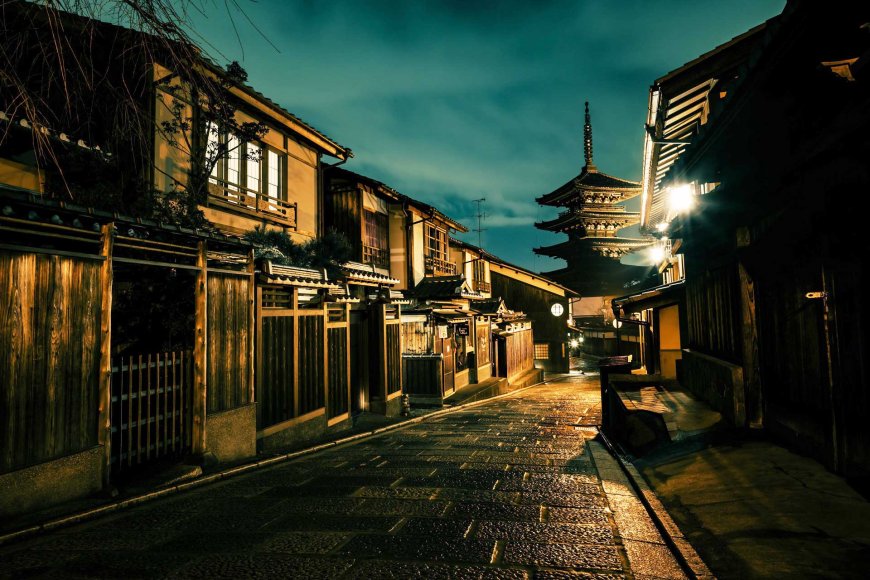In Japanese culture, the concept of Wa (和) — often translated as harmony or peace — holds deep significance. It is a fundamental value that shapes both personal and collective aspects of life. The idea of Wa emphasizes the importance of maintaining smooth, peaceful relationships within families, communities, workplaces, and even in broader social interactions. This concept permeates various aspects of Japanese society, from traditional practices to modern business dealings. In this article, we will explore the role of Wa in Japanese culture, its influence on social dynamics, and its lasting impact on the nation’s identity.
1. The Foundation of Social Interactions in Japan
At the heart of Wa is the belief that maintaining harmony within social groups is essential for a peaceful and functional society. In Japan, this value is deeply ingrained in daily life, starting from childhood. Social interactions are often guided by a desire to avoid conflict, preserve group unity, and ensure that everyone feels respected and valued.
In personal relationships, this means prioritizing others’ feelings over one’s own desires and avoiding actions that might disrupt the group dynamic. This is reflected in the way people speak, behave, and even dress. For example, in social situations, Japanese people often show deference to others through respectful language and gestures, a practice known as keigo.
2. Wa in the Workplace: Teamwork Over Individualism
One of the most noticeable expressions of Wa is in the Japanese workplace, where teamwork and group success take precedence over individual achievement. While personal accomplishments are still recognized, they are often seen in the context of how they contribute to the overall success of the team or organization.
In many companies, there is a strong emphasis on consensus-based decision-making, which helps to ensure that all voices are heard, and no one feels left out. This practice, known as ringi-sho, involves circulating a document among relevant parties to gather feedback and reach a consensus before making a decision. This process may take longer, but it fosters a sense of shared responsibility and strengthens the bonds within the team.
Japanese businesses also prioritize maintaining good relationships with clients and partners. The practice of nemawashi, which involves informal discussions before formal meetings to build consensus, is a way to ensure that everyone is on the same page and that potential conflicts are resolved in advance. These efforts are rooted in the concept of Wa, aiming to preserve harmony and avoid confrontations.
3. The Role of Wa in Family Life
In the family, the idea of Wa emphasizes the importance of maintaining a harmonious household where each member’s role contributes to the well-being of the family as a whole. Traditionally, the family unit has been patriarchal, with the father assuming the role of the head of the household. However, harmony within the family has always been prioritized over individual needs, with a strong focus on maintaining peace and avoiding discord.
Parents often encourage their children to think of the family’s needs before their own. This can be seen in the Japanese concept of amae — the expectation that children rely on the care and affection of their parents while also learning to adhere to the family’s values. As children grow, they are taught to contribute to the family’s collective welfare, respecting elders and deferring to authority figures.

4. Wa in Japanese Ceremonial Practices
The cultural value of Wa is also reflected in Japan’s rich array of traditional arts and ceremonial practices, where harmony and unity are central to the experience. One prominent example is the Japanese tea ceremony, or chanoyu. In this ritual, participants strive for harmony between themselves, the environment, and the objects they use. Every action, from the preparation of tea to the way participants bow to each other, is carefully orchestrated to create a serene atmosphere that reflects the ultimate goal of peaceful interaction.
The Japanese garden is another example of the aesthetic manifestation of Wa. The layout of these gardens is designed to evoke a sense of calm and balance, encouraging visitors to reflect on the interconnectedness of all things in nature. The practice of bonsai, or miniature tree cultivation, also mirrors the importance of balance, patience, and harmony in Japanese aesthetics.
5. Wa in Social Etiquette and Behavior
In Japanese social etiquette, Wa plays a significant role in how people interact with one another. Respecting social hierarchies, showing humility, and avoiding confrontation are all ways in which harmony is maintained in social interactions. The use of polite language, proper bowing, and maintaining a sense of personal space are all ways in which Wa is expressed.
For example, when meeting someone for the first time, Japanese people often exchange business cards with a deep bow to show respect. The act of bowing itself is an expression of harmony, acknowledging both the personal relationship and the social context. Similarly, when dining together, it is customary to wait for everyone to be served before beginning to eat, emphasizing the importance of unity and shared experience.
6. Wa in Modern Japanese Society
While Wa has traditionally been an important cultural value, it continues to influence modern Japanese society, especially in urban areas where people from different backgrounds and regions come together. In the face of globalization and rapid technological advancements, maintaining harmony in social relations has become even more important, as people strive to balance the demands of modern life with traditional values.
In cities like Tokyo and Osaka, the value of Wa is reflected in efforts to create harmonious living environments. This includes the design of communal spaces, where individuals are encouraged to respect others’ needs for privacy, quiet, and personal space. Additionally, Japan’s emphasis on cleanliness, public manners, and orderliness helps to maintain social harmony in crowded public areas.
Conclusion
The concept of Wa plays a vital role in shaping Japanese society, from family life to business practices and everyday interactions. By prioritizing harmony over individual desires, the Japanese culture fosters a sense of unity and respect that permeates all aspects of life. While modern Japan continues to evolve, the influence of Wa remains a powerful force in maintaining social cohesion and ensuring that relationships, both personal and professional, are built on mutual respect and understanding. As such, Wa is more than just a cultural ideal; it is a guiding principle that helps to create a balanced, peaceful society.











